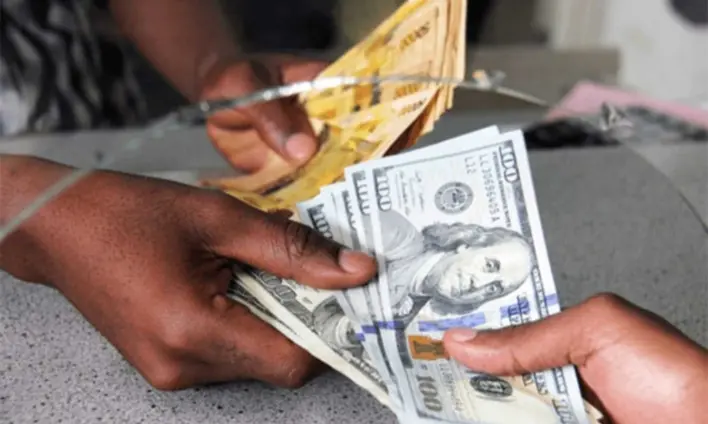Ghana stands on the cusp of significant economic improvement, according to the latest Absa Cedi Report (May 2025). The report paints an optimistic picture, forecasting the nation’s current account surplus will rise to 5.1% of Gross Domestic Product (GDP) in 2025. This marks a notable increase from the 4.3% recorded the previous year, signaling a period of potential growth and stability for the West African nation. The engine driving this projected surplus? Primarily, it’s increased gold and cocoa exports that are expected to bolster Ghana’s reserves and provide crucial support for the Cedi, Ghana’s currency. Understanding the factors that contribute to this economic projection is key. This analysis delves into the anticipated surge in exports, exploring the blend of increased production, favorable weather conditions, and the ever-shifting dynamics of global trade, all of which are expected to influence Ghana’s economic fortunes.
The forecast suggests that strategic advantages, such as rising gold production and rebounding cocoa yields, could significantly impact the nation’s financial health. The predicted **Ghana GDP** surplus reflects more than just numbers; it represents potential opportunities for investment, infrastructure development, and improved living standards for the Ghanaian people.
The primary drivers of Ghana’s projected economic surplus are undoubtedly its key exports: gold and cocoa. Both commodities are expected to experience production increases and benefit from global market conditions, leading to a substantial boost in revenue. This anticipated surge in export earnings is seen as vital to stabilizing and potentially strengthening the Ghanaian Cedi.
Ghana’s gold sector is set for a significant boost with several new mines expected to come online in 2025. The Absa Report highlights this anticipated increase in production, noting that “Several new mines (including the Cardinal-Namdini and Ahafo South mines) are expected to commence production in 2025, according to their owners.” These new operations will contribute significantly to the nation’s gold output, allowing Ghana to capitalize on the global demand for the precious metal.
Furthermore, **Ghana** benefits from its gold being exempt from the latest wave of US tariffs, giving it a competitive edge in the crucial American market. As the Absa Report states, “The yellow metal is exempt from the latest wave of US tariffs.” This exemption allows Ghana to maintain and potentially increase its exports to the US without being penalized by additional levies.
Adding to the positive outlook is the role of gold as a safe-haven asset. With global uncertainty persisting, investors are increasingly turning to gold, driving its price to all-time highs, even reaching USD3,300/bl. This surge in prices directly benefits Ghana, boosting its export revenue and contributing to the projected economic surplus.
While gold is a major player, cocoa remains a vital component of Ghana’s economy. Weather conditions in neighboring Ivory Coast, a major cocoa producer, could have an impact on regional output. The Absa Report notes, “Amid expectations of a smaller harvest in the West African region. In particular, output from the Ivory Coast could suffer amid volatile weather conditions.” This potential decrease in Ivory Coast’s production could create opportunities for Ghana to increase its market share.
Fortunately, Ghana is experiencing more favorable weather conditions, leading to a rebound in cocoa production. Consistent rainfall has helped to improve yields, allowing Ghanaian farmers to capitalize on the potential shortfall in Ivory Coast and further boost the nation’s export earnings.
Absa maintains an optimistic outlook for the Ghanaian Cedi, largely based on the expected strength of gold and cocoa prices. The bank believes that the strong performance of these commodities will continue to support export receipts, providing a crucial buffer for the currency. As the Absa Report states, “We believe export receipts will continue to benefit from supportive gold and cocoa prices.”
The Cedi has already shown signs of strength, recently appreciating significantly against the dollar. It rose from GH₵15.50 to the dollar to GH₵12.40, reflecting increased confidence in the Ghanaian economy. This appreciation further reinforces the positive outlook presented in the Absa Cedi Report.
The Governor of the Bank of Ghana (BoG), Dr. Johnson Asiama, plays a crucial role in managing monetary policy and ensuring the stability of the Cedi. The BoG’s actions and policies will be instrumental in maintaining the positive trajectory outlined in the Absa report.
The Absa Cedi Report’s forecast of a 5.1% **Ghana GDP** surplus for 2025 offers a promising glimpse into the nation’s economic future. Boosted by increased gold and cocoa production, supported by favorable weather and global market advantages, Ghana is well-positioned to strengthen its reserves and stabilize its currency. While the accuracy of this prediction will unfold in the coming years, current indicators point towards a bright economic outlook for Ghana. The nation’s ability to capitalize on these opportunities will be crucial in ensuring sustainable growth and prosperity for its citizens. The projected surplus underscores the importance of continued investment in key sectors like mining and agriculture, as well as sound economic management to navigate the complexities of the global market.
Image Source: MYJOYONLINE





















